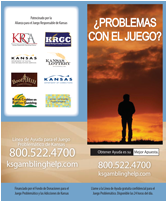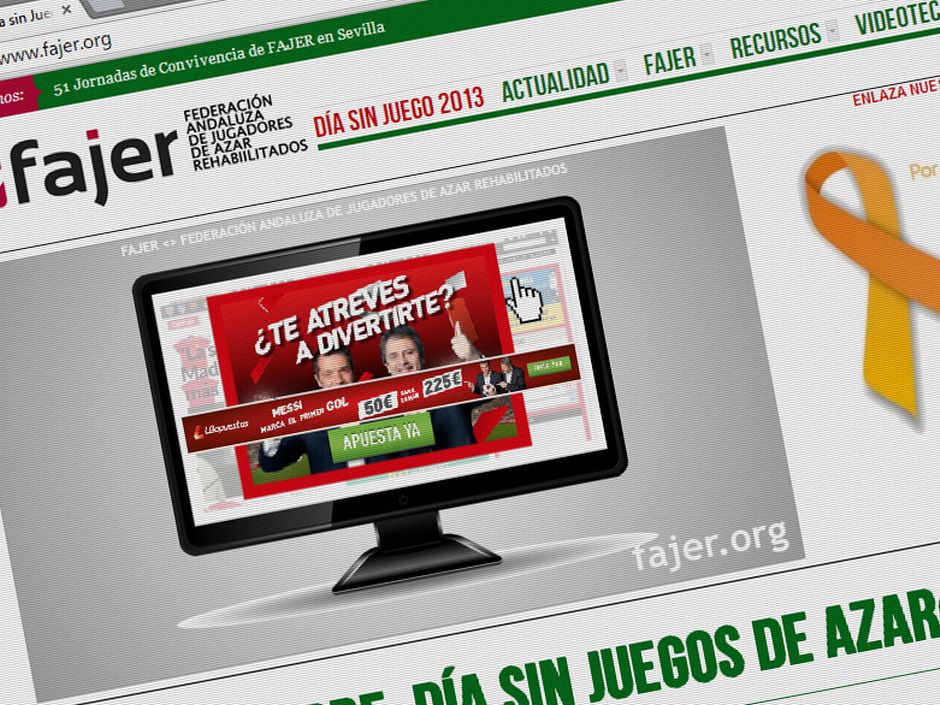What Is Gambling Problem In Spanish

KnowTheOdds Launches New English and Spanish Problem Gambling Education Resources Posted On April 2, 2014. New York Council on Problem Gambling is pleased to announce the launch of new English and Spanish-language resources to educate the public about gambling addiction, help problem gamblers find the treatment they need and prevent future addictions from beginning. Gamble - Translation to Spanish, pronunciation, and forum discussions. Inflections of 'gamble' (v): (⇒ conjugate) gambles v 3rd person singular gambling v pres p verb, present participle: -ing verb used descriptively or to form progressive verb-for example, 'a singing bird,' 'It is singing.'
They bet on almost anything, including lotteries, football and racing pools, horse racing (illegal betting shops, where punters bet on foreign horse and greyhound racing, are common in resort areas), bingo, slot machines, casinos, and the big jai-alai games in the Basque Country and Madrid. Prizes can be huge running into hundreds of thousands of euros.

The most popular form of gambling is the state national lottery ( Lotería Nacional) run in aid of charities and the Catholic Church. Lottery tickets are sold at lottery offices at face value or can be purchased from street vendors (10 per cent commission is added) and through ONCE (the Spanish organisation for the blind) kiosks manned by the blind or those with impaired sight. ONCE sells lottery tickets for a daily draw (Friday’s has the largest prize) and scratch cards (known as Rasca y Gana).
Spain’s and the world’s biggest lottery, ‘the fat one’ ( El Gordo), is held at Christmas and consists of 108 series of 66,000 tickets, each costing €200. Not surprisingly, €200 is too much for most people and tickets are divided into ten shares ( décimos). Many clubs and charities buy a décimo and offer shares (called partcipaciones) for a couple of euros, usually adding a small surcharge. The total amount wagered on El Gordo is over €1.7 billion, some 70 per cent of which is paid in prizes.
‘The fat one’ has its own website (http://www.elgordo.com) and there are several villages in Spain that regularly sell winning tickets for El Gordo, such as the tiny village of Sort (meaning ‘luck’ in Catalan!), in the Pyrenees where coachloads of hopeful lottery ticket buyers flock every autumn!
Tickets are usually sold out long before the draw on the 22nd December, which is televised live (it takes three hours) and traditionally made by the children of the San Ildefonso school in Madrid. Winning numbers are published in newspapers on 23rd December and the list is posted in lottery offices for three months following the draw. Winners must claim their winnings, as they aren’t sent to them automatically (unclaimed winnings go back to the state). If you win a big prize you can take your ticket to a Spanish bank, which gives you a receipt and collects your winnings on your behalf. Lottery prizes are free of all taxes. Spain’s second-largest lottery is called the kid ( El Niño) after the baby Jesus and takes place on 5th January.
Spain has some 20 casinos, and there’s also one in Gibraltar. The most common casino games are American and French roulette, black jack, punto y banca and chemin de fer, plus the ubiquitous slot machines and private gaming rooms. There’s usually an entry fee, and visitors must show their passports (to identify professional gamblers). Most casinos are open from late afternoon until the early hours of the morning, e.g. 5pm until 4 or 5am. Dress code is smart casual (no jeans, sandals or T-shirts).
This article is an extract from Living and Working in Spain.
Click here to get a copy now.
New York Council on Problem Gambling is pleased to announce the launch of new English and Spanish-language resources to educate the public about gambling addiction, help problem gamblers find the treatment they need and prevent future addictions from beginning.
Spanish-Language KnowTheOdds
Over the past year, KnowTheOdds.org has released several educational resources to raise awareness about problem gambling in New York State and throughout the world. Our blog posts, ebooks, videos and other materials have been shared by counselors and organizations to help people understand the warning signs of problem gambling, its consequences ad how we can help people in our communities.
Now, you can find KnowTheOdds’ e-books, videos, gambling support directory and more available in Spanish by visiting es.KnowTheOdds.org. Here, we hope to encourage Spanish-speaking problem gamblers to learn more about finding the support they need, and we seek to raise awareness among Spanish-speaking communities.

As always, the NYS HOPEline is available for callers speaking both English and Spanish. Support can be reached 24 hours per day, 7 days per week by calling 1-877-8-HOPENY.
The Path Of Problem Gambling Infographic
We’ve written a lot about problem gambling, but sometimes, it’s hard to understand stories without visual help. “The Path of Problem Gambling” is KnowTheOdds’ brand new interactive infographic. Walk through the early stages of gambling addictions, from common causes and signs to common consequences, and learn more about how to seek treatment and begin recovery.


With this infographic, we hope more people will understand problem gambling. It’s not poor decision-making and irresponsible gambling – it’s a recognized addiction, just as alcoholism and drug abuse are.
New KnowTheOdds Animated Videos
All kinds of storytelling methods impact people, and at KnowTheOdds, we know video can make a tremendous difference. This month, we’re sharing two new animated videos to raise awareness about problem gambling. We invite our friends to help us raise awareness by sharing “Mirrors” and “Friends and Family” across social networks – together, we can inform more people about problem gambling and the help that is available.
Our Gambling Addiction Awareness Work Is Not Done
National Problem Gambling Awareness Month is over, but we’re still working to teach more people about problem gambling every day. We invite you to join us – whether you teach one person or one hundred, it can make a difference in the lives of many.